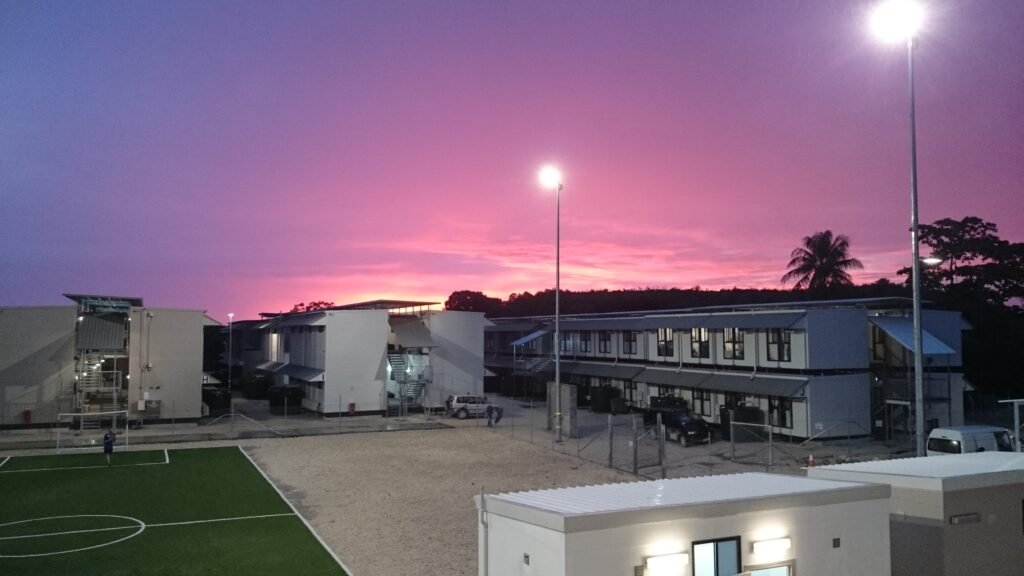
The state of civic space in Nauru is rated as ‘obstructed’. Concerns documented in recent years include restrictions on media freedom due to prohibitively high visa fees to enable foreign journalists to visit the country. Very few journalists have been able to access the country to report on human rights issues such as the treatment of asylum seekers and refugees. Further, Nauru has not yet ratified the International Covenant on Civil and Political Rights (ICCPR) or established a national human rights institution.
Expression
Report highlights restrictions for refuges to communicate
There are concerns that asylum seekers being detained in Nauru are being denied access to freedom of expression and to receive and impart information.
As previously documented, Australia’s sole remaining offshore refugee processing centre in Nauru was closed in June 2023 after the last refugees were evacuated off the island. However, in September 2023, a new group of asylum seekers was transferred from Australia. The number has been steadily growing and as of June 2024 there were about 100 asylum seekers held on the island. About 85 are being held inside the RPC1 detention centre, while about 15 are in the Nauru community
A new Asylum Seeker Resource Centre (ASRC) report published in June 2024 has highlighted the suffering of refugees on the island. The report also found that in keeping with the Australian government’s long history of secrecy surrounding the welfare and future of people held offshore, refugees currently detained in Nauru have had smartphones taken from them – and with them access to apps like WhatsApp to communicate with family – replaced by “brick” dumb phones without cameras, which means they cannot take photos to document their detention.
Further, humanitarian websites are blocked on shared computers, and refugees are only given limited phone credit to make outgoing calls.
Heidi Abdel-Raouf, the detention casework policy lead for the ASRC, told The Guardian in June 2024 that the authorities on the island had kept asylum groups separate – and so unable to share information – and restricted people’s ability to contact family members, support agencies or advocacy organisations.
The right of access to information is recognised under Article 19 of the Universal Declaration of Human Rights (UDHR) as an element of freedom of expression. It is included as the right to seek and receive information. A number of countries made recommendations to Nauru during its Universal Periodic Review (UPR) at the UN Human Rights Council in 2021 to ensure the right to freedom of expression and the right of access to information.
As previously documented, human rights groups have called Australia’s policy of detaining migrants offshore a violation of international human rights laws. In February 2020, the International Criminal Court (ICC) found that detention conditions of refugees in Nauru may constitute a breach of international law. This detention appears to amount to “cruel, inhuman or degrading treatment”, according to the Court.